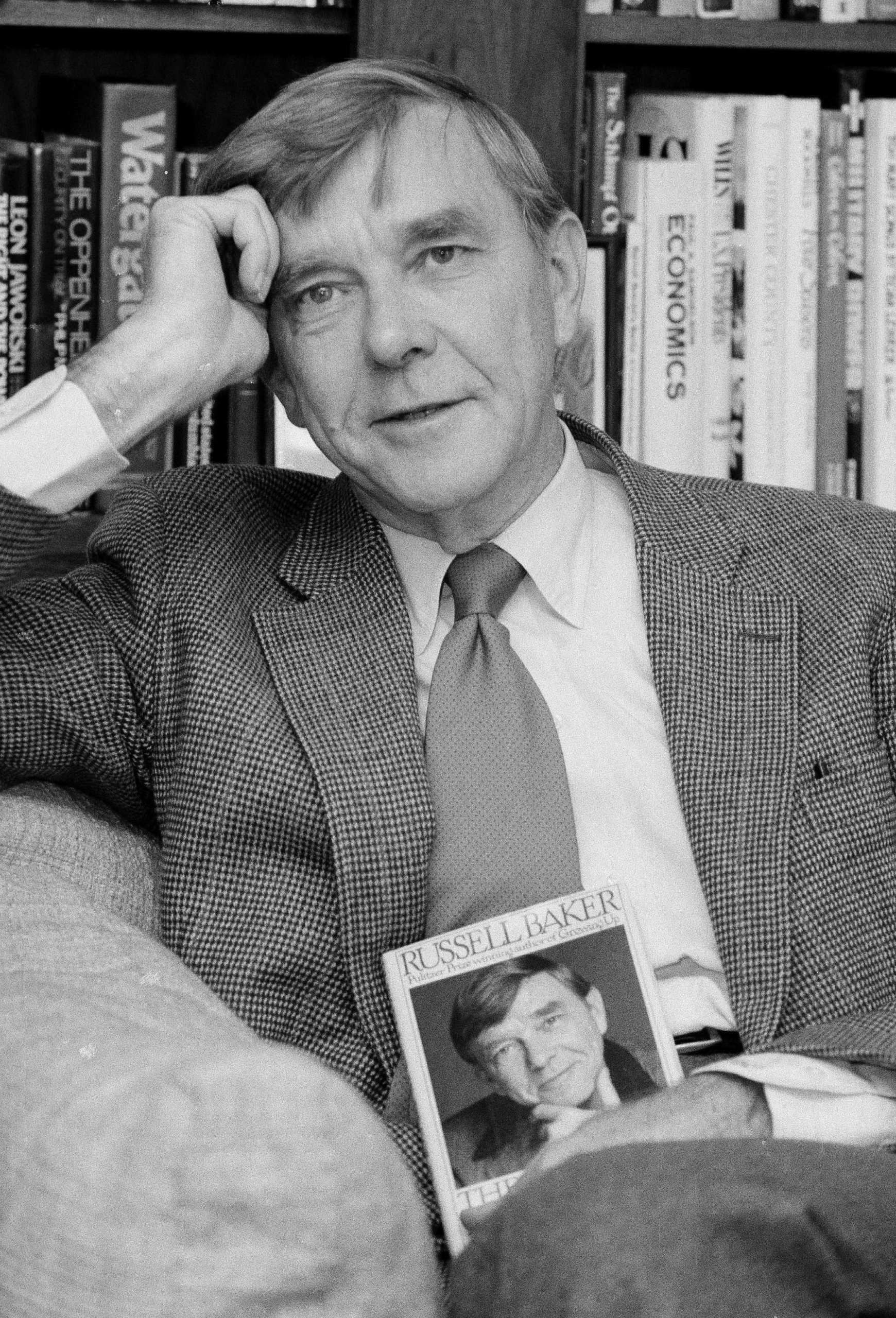My last communication with Russell Baker was my invitation to him to attend the annual Christmas party hosted by New York Times Washington bureau chief, Elisabeth Bumiller. I told him, via email, that I would even pick him up at the Metro or Amtrak station.
His silence was his answer, a resounding rejection—a no to the idea of traveling from his home in Leesburg, which is about the farthest community west of the nation’s capital in Virginia that can be deemed suburban Washington.
The fact was, the man who much, if not most, of Washington deeply admired could not abide the city that provided him fame and fortune.
ICYMI: BuzzFeed management faces harsh criticism from staffers, internal messages reveal
Baker died on January 21 at his home of complications from a fall, according to his son. He was 93. He was a two-time Pulitzer Prize winner, once for his humorous columns in the Times and another for a memoir, Growing Up, about his early life in rural Virginia during the Great Depression. He was later host of public television’s “Masterpiece Theatre,” where he succeeded Alistair Cooke.
But I knew him in the Washington bureau where we loved and enjoyed his presence and especially his humor, despite his dislike of the city—a dislike which he was not hesitant about declaring. He had hinted so in his columns and said so in several of his books. He repeated that sentiment at our last get-together, lunch in Leesburg in mid-2017, a few months before the Christmas party invitation.
When we were in the Washington bureau together—I was there from 1969 to 1974—he, already the famous columnist, frequently joined us reporters for lunch or drinks after work. He sometimes invited a few of us to dinner at his home with his wife, Mimi.
But he detested Washington, and he’d let anybody know it. I always thought he was turned off by an atmosphere especially poisoned by racist southern segregationist politicians like Senators John Stennis and James O. Eastland, of Mississippi; Strom Thurmond of South Carolina and Richard Russell of Georgia, among many others. If Russ disdained the poisonous atmosphere back then, he should have been writing over the past two years.
When I joined the Times, I was the first and only Black reporter in the Washington bureau. There were two other African Americans in the office, Fannie Jo Hunter, receptionist, and researcher Carleton Spriggs. Russ was among the majority extending a warm welcome to me; there were a few who were cold, or simply against integrating the office. I tried not to take it personally.
Max Frankel, then the Washington bureau chief, hired me as part of his new “urban cluster” team of four, whose assignment was to cover every aspect of the rapidly-changing urban American landscape. We did it with gusto and success. The other reporters were John Herbers, James Naughton, and Jack Rosenthal, aIl great journalists. I am the only surviving member. Russ lunched with us rather frequently and unwittingly, and jokingly, he contributed to our thinking and planning (and scheming).
Some of my colleagues had their own recollections of Russ. Hedrick Smith, the former bureau chief in DC and Moscow, tells me that when he and Robert Semple, Jr., White House reporter, and others had lunch with the columnist, “He would bemoan that he did not have any idea for his column that day. So Semple and I would spend the entire lunch struggling to help ‘poor Russ’ dream up a good column, and Baker would engage us, kicking angles back and forth.
“Next day, Semple and I would open the paper, eagerly hunting down Baker’s column to see whose idea he used. Invariably, his column had nothing to do with anything we had suggested. He had an entirely different column, more original, funnier and insightful than anything we had suggested. . . . He was a genius.”
Edward Cowan recalled that when Russ covered Congress, he hated receiving mail from public relations people and would, “discard them with audible, visible contempt—without opening the envelope and glancing at the press release.”
Irv Molotsky, a former Times reporter and editor, while warning us not to totally trust his recall, says that Russ’s column eventually ceased due to collateral damage. The publisher had decided to discontinue former Executive Editor A.M. Rosenthal’s column. He was doing so because the column was terrible. But the reason given was that Rosenthal had reached the mandatory retirement age. That meant the end, too, for Anthony Lewis, who protested vigorously, and Russell Baker, who did not.
“I phoned Russ and expressed my regrets that he was also losing his column,” Molotsky recalls. “‘Oh, Molotsky,’ he answered, or something like that, ‘that’s okay, I’ve found that I’ve been repeating myself.’ He hadn’t been, but he gracefully bowed out.”
Paul Delaney is an award-winning reporter, editor, and journalism educator. He worked for 23 years at The New York Times, and was a founding member of the National Association of Black Journalists.

